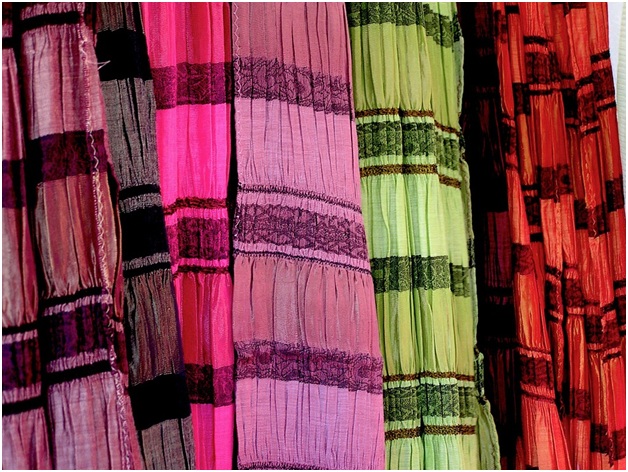Life can be uncomfortable for people with sensitive skin or skin allergies, and often it is difficult to pinpoint the cause. Foods, cosmetics, pets, medicines, household cleaners, toiletries or contact with certain types of fabric can all cause a reaction, such as itching, rashes, spots, burning, redness and dryness.
Chemicals used in fabric manufacturing
Many people are unaware of the content of the fabric in their clothes, bedding and soft furnishings. According to the Guardian, experts increasingly warn that excessive chemical agents in clothes can leach into the wearer’s skin.
Chemicals such as organotin compounds, which aid breathability, and formaldehyde, which helps to prevent mould in storage and creasing, are just two ‘nasties’ added to the fabric that comes into contact with our skin.
Synthetic fabrics, even before they are coated in chemicals, are made from products that can potentially irritate skin; for example, polyester is made from terephthalic acid, a known skin irritant.
Irritating ourselves!
Many of us add fabric softener to our laundry, believing it will make our clothes soft and gentle against our skin; however, its chemicals can irritate our skin. Fabric softeners contain chemicals such as benzyl acetate and chloroform, which our skin gradually absorbs. National Geographic’s green guide suggests using a natural softener in the wash, such as bicarbonate of soda or white vinegar; however, it is not just chemicals that can upset the delicate balance of our skin.
Many of us will wake up with an unexpected breakout of spots. There could be many reasons behind this, one of which is not washing our pillowcases frequently enough. Grime, dirt and sweat lay on the fabric, and oils from your hair can transfer to your face and aggravate conditions such as acne − an unfortunate condition that can leave unsightly scars. If you have experienced this, there are many skin clinics offering treatment in London and throughout the country. London chemical skin peel treatments may help to reduce scarring and are available from clinics such as www.thelondoncosmeticclinic.co.uk.
We can look after our skin by avoiding clothing made from synthetic fabrics; using cotton bedding, as this is more breathable; washing our bedding regularly − especially pillowcases, which should be washed every two to three days; and avoiding putting fabric softener into our laundry.

